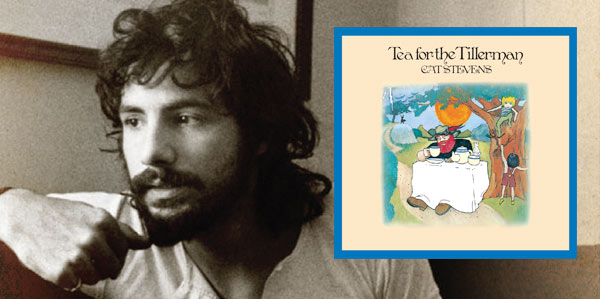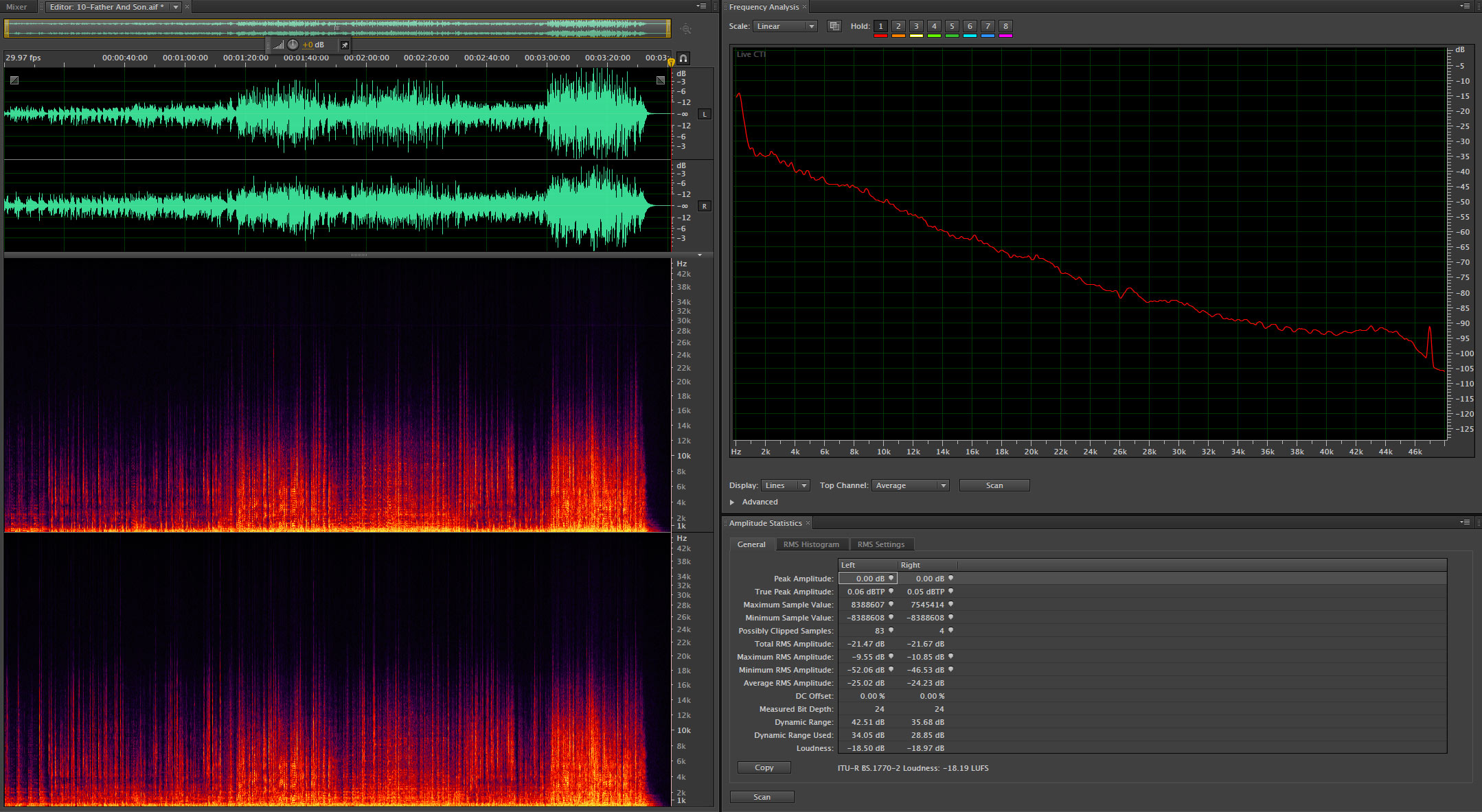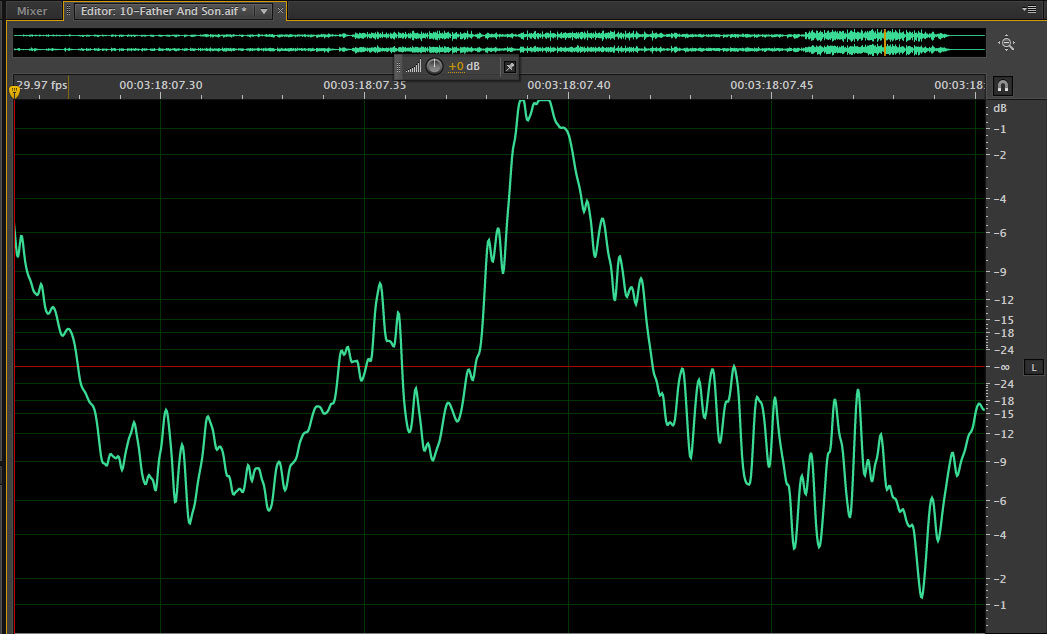Living With Clipping
This morning I stopped at SuperCuts after trying to get my cell phone replaced at the AT&T store. Got to be a clean cut adult during the Holiday season and I was due for a more than a trim. While I was sitting in the chair, I got to thinking about a track that I had downloaded the other day from HDtracks. I get their newsletters and happened to notice a special deal on the recently announced Rock ‘n Roll Hall of Fame inductees. Cat Stevens is one of those nominees. I signed onto my account and purchased the 96 kHz/24-bit PCM version of the album.
When it came time to download the album, the HD Downloader insisted on an upgrade before proceeding. I agreed to have the new version of their downloader installed on my Apple Mac Pro. The install seemed to go fine but I was unable to sign into my account using the updated app. The password worked just fine on the actual web page, but I was stuck and unable to download the files. I wrote a note to HDtracks (finding the contact information proved somewhat difficult, but I found an email on my purchase receipt) about the issue and got a prompt reply explaining that I had to change my password, clean my machine of any past versions of the downloader and reinstall the latest version. I did all of these things…got a few error messages but the files did download. I have the album at 96/24 in my HDtracks folder.
The “Tea for the Tillerman” album was recorded and released in November of 1970…my senior year in high school. It was a big hit among my friends and was a regular part of my playlist for a very long time (AR-100 turntable, HeathKit Receiver and Electro Voice Speakers). I was glad to get a chance to acquire this album once again.
I was also curious to do a little analysis on the files and am very pleased to say that they sound really good. The Wiki page states that, “In January 2012, a hi-res 24/192 kHz version was remastered using an Ampex ATR100 and a MSB Technology Studio ADC by Ted Jensen”.
The liner notes provide the provenance of the album:
“Tea for the Tillerman was recorded over the summer period in 1970, at Morgan Recording Studios in Willesden, and Island Studios in Basing Street. We were in-and-out of the studios over a five-month period, while Steve [Cat Stevens] was touring and promoting in-between times. Both albums were recorded onto 3M or Studer machines on 16 track two-inch tape at 15 inches per second with Dolby noise reduction and mixed onto quarter-inch tape at 15 ips with Dolby. The Album was mastered at Sterling Sound in New York by Lee Hulko, and recently re-mastered there by Ted Jensen.”
As it happens I’ve owned a 3M 56 16-track 2″ analog machine. And I’m very familiar with the Dolby A noise reduction used at the time. The very wide tracks of the 3M machine made it a favorite for drums and the professional Dolby system reduced tape hiss by about 10 dB. I was able to sell my 3M 56 deck some years later for more than I paid for it. It was a truck and capable of producing very high quality sound. The “Tea for the Tillerman” album sounds first rate…for a standard definition recording [Note: What I wouldn’t give to be able to capture that project using my own purist approach in real HD-Audio].
Figure 1 – The Spectragram of “Father and Son” for Tea for the Tillerman [Click to enlarge]
The amplitude plot and spectragram show a good amount of dynamic range…I measured it at around 30-35 dB. This is a number that we would expect for an analog tape project of this era. The frequency response tops out at about 30-35 kHz but there’s a faint tone just under 30 kHz. It could be some oscillation in the transfer path…not a big deal. But it is obvious that purchasing the 192 kHz wouldn’t add anything to the fidelity of the project.
I’m pleased that they transferred it at 192 kHz. It does assure us that absolutely nothing on the analog tape was lost…but it does nothing for the sound on our systems. I would love to hear that original transfer before Ted did his thing on it.
Figure 2 – Close up of the amplitude vs. time waveform showing clipping [Click to enlarge].
Where I do have a problem with the transfer and download are the clipped samples that occurs on a number of tracks. I’ll talk about clipping in both the analog and digital domains tomorrow and what it means when you download a digital file. Got to run…




I have the album myself. Sounds indeed very nice. If all the old tapes were handled like that, we audiophiles would be a lot more happy.
Cheery and Happy Holidays
I know it’s an old post but…
I read this post with interest as I am convinced that something was not quite right with the CD version of Cat Steven’s ‘Tea for the Tillerman’ when compared to the original LP…
With the advent of the CD and all the associated hype surrounding them, I decided to replace some missing albums with CD’s. My first purchases was ‘Tea for the Tillerman’ by Car Stevens and a result of the aforementioned hype, I expecting at the very least a carbon copy, then again, if remastered and the same quality sound engineering is employed, it had be be better didn’t it?
I didn’t have the chance to compare both versions as I hadn’t got the original album but memory, when it comes to music, is quite remarkable. If I play a track you are familiar with (even if you haven’t head it in years), your brain can quickly identify differences even if very slight… (not a good argument I know but nevertheless true if you have a good ear)…
Assuming I am correct and there are in fact some minor differences in individual tracks between the Album and CD versions, how can this happen?
Mike
This happens because of mastering differences.